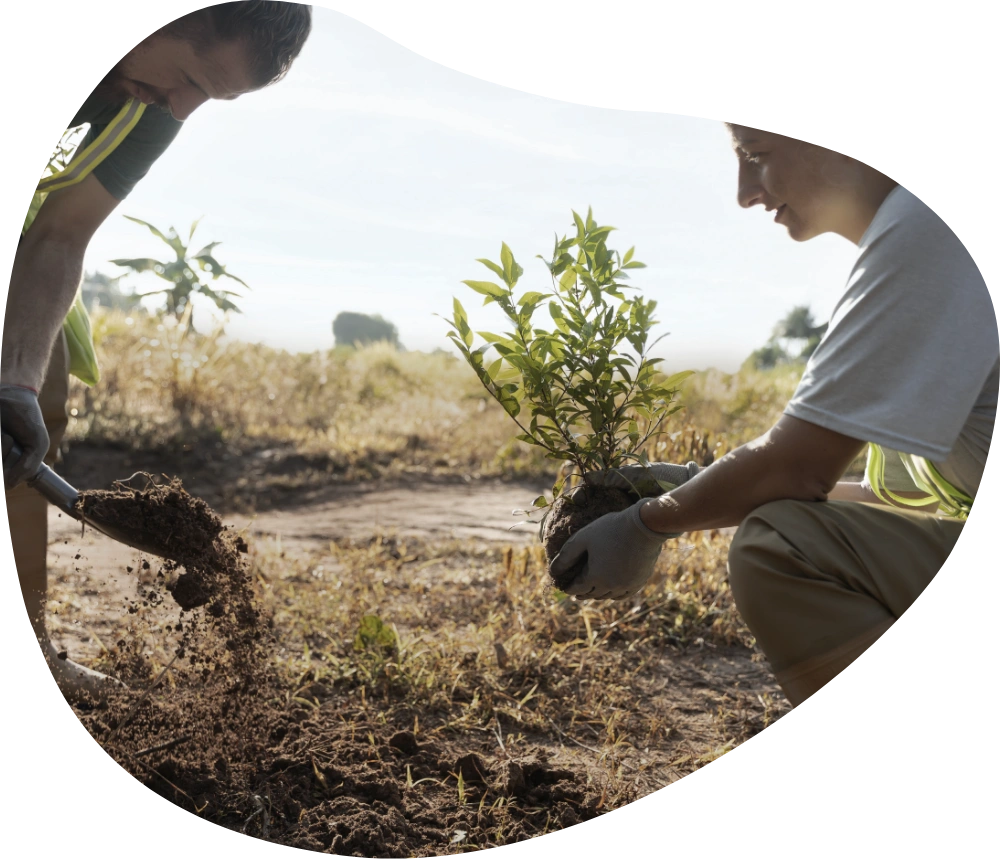Empower a Greener Future with Upskilling in Environmental Awareness
Welcome to the forefront of environmental education
Where upskilling in environmental awareness isn't just a goal—it's our reality. Dive into our transformative project results that are reshaping the landscape of adult education. From in-depth reports to innovative curricula and digital platforms, we're turning knowledge into action for a sustainable tomorrow.

Results
Descriptive
Mapping Report
Mapping Methodology Report of Adult Education in Environmental Awareness and Sustainable Development
Mapping Methodology served as a general outline of the methods employed in the Descriptive Mapping Report of Adult Education in Environmental Awareness and Sustainable Development. The methodology WE implemented to meet the Descriptive Mapping of AE in Environmental Awareness and Sustainable Development objective was a mixed methods research methodology.
Mixed methods research is a methodology for conducting research that involves collecting, analysing and integrating quantitative and qualitative data in a single study and a series of analyses. The rationale for using quantitative and qualitative methods in combination was that it provides a better understanding of research problems than using them in isolation.
Descriptive Mapping Report of Adult Education in Environmental Awareness and Sustainable Development
Our comprehensive Descriptive Mapping Report is a cornerstone resource for adult educators and learners alike. It presents a detailed overview of the current landscape of adult education, with a sharp focus on sustainable development and environmental awareness. This report is a compilation of national insights, pinpointing the educational frameworks and specific needs of adult educators and learners, particularly those not in education, employment, or training (NEETs). It highlights exemplary practices and offers a wealth of knowledge on effective educational strategies and resources, all aimed at upskilling in environmental awareness.
WE
Curriculum
Structure of Curriculum and Guidelines on Environmental Awareness and Sustainable Development in Adult Education
The purpose of the Curriculum Structure and Guidelines was to provide a curriculum structure for a WE learning module and guidelines for development of WE learning modules based on the findings of the Descriptive Mapping report. In order to ensure consistency of data, as standardisation improves efficiency by providing a structured framework for decision making, all 10 units under the curriculum were developed based on the Structure of Curriculum and Guidelines.
WE Curriculum on Environmental Awareness and Sustainable Development in Adult Education
The WE Curriculum is an innovative educational structure crafted to fulfill the pressing demand for resources that bolster the proficiency of adult education trainers. It emphasizes the upskilling of low-skilled adults in environmental awareness, equipping them with green skills that are valuable both in the workplace and in personal life. The curriculum encompasses 10 comprehensive modules, each designed to foster sustainable living and empower communities to care for their environment sustainably. These modules are backed by Open Badges and the ESCO classification, ensuring their recognition and validity.
- Module 0: Instructions
- Module 1: Green skills to develop the imitation and adaptation for encountering climate change challenges
- Module 2: Understanding SDGs and their potential for improving society and communities
- Module 3: Relate emotional complexity on one’s own identity and responsibility for climate change
- Module 4: Assess the influence of individual lifestyle choices on our social and ecological development
- Module 5: Exploring a sustainability issue by identifying trends in the family or local community
- Module 6: Knowledge and skills which reduce the negative impact of human activity on the environment
- Module 7: Collective action & Individual Initiative
- Module 8: Types of jobs that require a good knowledge of SDGs and green skills
- Module 9: Practical tips on having a positive impact on the environment
- Module 10: Overcoming Misconceptions on environmental issues
Digital
Knowledge Hub
Digital Knowledge Hub is a pioneering e-learning space
Our Digital Knowledge Hub is a pioneering e-learning space that integrates gamification and interactive modules on key topics such as Sustainable Development, Environmental Awareness, and Climate Change. This platform is dedicated to enhancing the green skills of adult education trainers and low-skilled adults. Upon completing the modules, learners are acknowledged with Open Badges in line with the ESCO framework. The Hub's mission is to elevate environmental consciousness and promote sustainable practices, while also introducing cutting-edge teaching methodologies through its inclusive digital environment.
Gamified
Mobile App
The WE Gamified Mobile App
The WE Gamified App is an engaging mobile application that blends gaming with ecological education. Users engage with games that are not only fun but also informative, instilling eco-friendly habits and an environmentally mindful attitude. The app serves as a portal to a wealth of environmental knowledge, skills, and competencies, and keeps users updated on local environmental initiatives, spurring on community involvement and active participation in sustainability efforts.
Join our community of proactive learners and educators!
Explore our comprehensive resources, engage with our interactive modules, and elevate your environmental consciousness. Click below to start your journey towards upskilling in environmental awareness and contribute to a sustainable future today!



